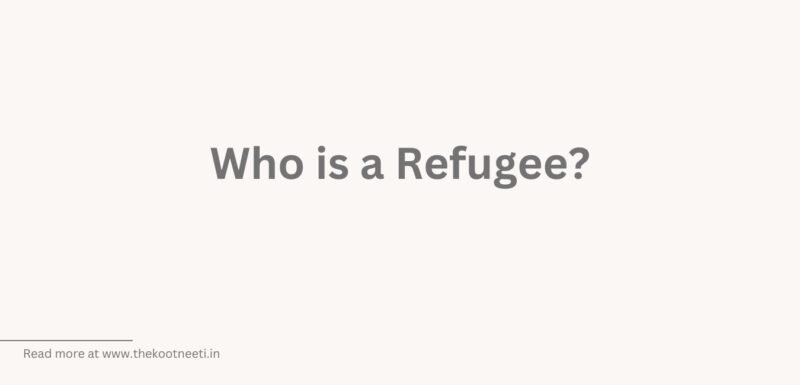Who is a Refugee? Definition and Case Study

A refugee is a person who has been forced to flee their home country due to persecution, conflict, violence, or other serious human rights violations. Refugees are often forced to leave behind their homes, possessions, and loved ones, and may face significant challenges in finding safety and security in other countries.
The United Nations (UN) defines a refugee as a person who is outside their country of nationality or habitual residence and who is unable or unwilling to return due to a well-founded fear of persecution based on their race, religion, nationality, membership in a particular social group, or political opinion.
There are millions of refugees worldwide, and many of them are hosted by developing countries, which often have limited resources to support them. The UN and other international organizations, such as the Office of the United Nations High Commissioner for Refugees (UNHCR), play a key role in providing assistance to refugees and in finding durable solutions for them, such as voluntary repatriation, local integration, or resettlement in other countries.
What is refugee crisis?
A refugee crisis is a situation in which there is a large-scale movement of refugees, typically as a result of conflict, persecution, or other serious human rights violations. A refugee crisis can occur when there is a sudden influx of refugees into a country or region, and the existing resources and infrastructure are insufficient to meet their needs.
Refugee crises can have significant humanitarian, economic, and political consequences, and they often require the intervention of international organizations and other actors to address. Refugee crises can also pose significant challenges for the countries and communities that host refugees, as they may have limited resources to support them and may face social and political tensions as a result of the influx of refugees.
There have been many refugee crises throughout history, and some of the most significant recent examples include the Syrian refugee crisis, the Rohingya refugee crisis, and the Venezuelan refugee crisis. These crises have resulted in the displacement of millions of people and have had far-reaching consequences for the affected countries and regions, as well as for the international community more broadly.
Case Study – Syrian Refugee Crisis
One of the most significant and well-known refugee crises in recent history is the Syrian refugee crisis.
The Syrian refugee crisis began in 2011, when the Syrian civil war broke out. The conflict, which is ongoing, has led to the displacement of millions of people within Syria and to the flight of millions of others to neighboring countries and beyond. As of 2021, it is estimated that over 13 million Syrians have been displaced, including over 6 million who have fled the country as refugees.
The Syrian refugee crisis has had a number of impacts on the region and on the world. It has put a strain on the resources and infrastructure of host countries, including Lebanon, Jordan, and Turkey, which have taken in the majority of Syrian refugees. It has also led to social and economic challenges, as many refugees live in poverty and face barriers to accessing education, employment, and other basic services.
The Syrian refugee crisis has also had political and diplomatic implications, as it has contributed to tensions between different countries and has raised questions about the responsibility of the international community to provide protection and assistance to refugees.


















